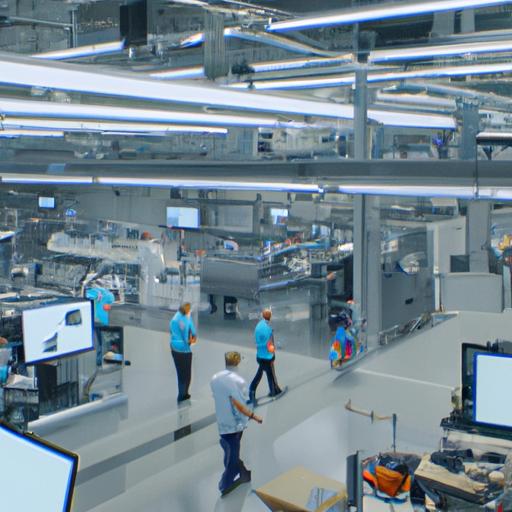
Introduction
In the world of manufacturing, the term “ERP systems” often floats around, but what exactly do they entail for companies in this sector? ERP, or Enterprise Resource Planning, systems are robust software solutions designed to streamline operations and enhance efficiency in manufacturing companies. These systems integrate various functions across departments, offering a centralized platform to manage processes seamlessly.
The importance of implementing ERP systems in manufacturing companies cannot be overstated. With the ever-increasing complexity of operations in this industry, having a comprehensive system that consolidates data, automates tasks, and provides real-time insights is a game-changer. ERP systems pave the way for improved decision-making, optimized resource allocation, and enhanced productivity – essential elements for staying competitive in the fast-paced manufacturing landscape. Let’s delve deeper into the world of erp systems for manufacturing companies and unravel the benefits they bring to the table.
Benefits of ERP Systems for Manufacturing Companies
Streamlined Operations and Increased Efficiency
In the fast-paced world of manufacturing, efficiency is key to staying ahead of the competition. ERP systems play a pivotal role in streamlining operations by integrating different functions into a cohesive platform. From order processing to production scheduling, ERP systems automate tasks, eliminate manual errors, and provide real-time visibility into operations. This seamless integration not only reduces delays but also enhances overall efficiency, allowing manufacturing companies to meet customer demands with precision and speed.
Improved Inventory Management
Inventory management is a critical aspect of manufacturing companies, and ERP systems offer a comprehensive solution to optimize this process. With real-time tracking of inventory levels, materials usage, and reorder points, manufacturers can ensure optimal stock levels, minimize wastage, and prevent stockouts. Additionally, ERP systems provide insights into supply chain management, vendor performance, and demand forecasting, enabling companies to make informed decisions that drive cost savings and operational excellence.
Enhanced Production Planning and Scheduling
Efficient production planning and scheduling are essential for meeting production targets and fulfilling customer orders on time. ERP systems facilitate better coordination between different departments, such as production, procurement, and quality control, by providing a centralized platform for planning and scheduling. By automating workflows, optimizing resource allocation, and aligning production schedules with demand forecasts, ERP systems enable manufacturing companies to enhance productivity, reduce lead times, and deliver high-quality products consistently.
Case Studies of Successful Implementation of ERP Systems in Manufacturing Companies
Company A: Increased Production Efficiency and Reduced Costs
In the competitive realm of manufacturing, Company A embarked on the journey of implementing an ERP system to enhance its operational efficiency and drive cost savings. By integrating an ERP solution tailored to their specific needs, Company A witnessed a significant boost in production efficiency. The streamlined processes facilitated by the ERP system allowed for smoother workflow management, reducing bottlenecks and optimizing resource utilization. As a result, Company A experienced accelerated production cycles and improved output quality, ultimately leading to increased customer satisfaction.
Company B: Improved Inventory Accuracy and Streamlined Operations
For Company B, the implementation of an ERP system brought about a transformative change in their inventory management practices. By leveraging the inventory management module of the ERP system, Company B achieved a remarkable improvement in inventory accuracy. Real-time tracking and monitoring functionalities provided by the ERP system enabled Company B to have a precise view of stock levels, leading to reduced instances of stockouts and overstocking. This newfound precision in inventory management not only minimized wastage but also streamlined overall operations, enhancing the company’s competitiveness in the market.
Conclusion
In conclusion, ERP systems for manufacturing companies serve as the cornerstone for modernizing operations and driving success in the industry. By leveraging the advanced capabilities of ERP software, organizations can achieve heightened efficiency, improved decision-making, and seamless integration of processes. The benefits of implementing ERP systems, from streamlining operations to enhancing production planning, are undeniable.
When considering the diverse factors that come into play when choosing the right ERP system for a manufacturing company, it becomes apparent that scalability, integration, and user-friendliness are critical aspects to evaluate. By carefully assessing these factors and aligning them with the specific needs and goals of the business, companies can embark on a transformative journey towards operational excellence and sustained growth.
Embracing ERP systems is not just about adopting a software solution; it’s about embracing a strategic approach to optimize processes, enhance collaboration, and drive innovation. With the right ERP system in place, manufacturing companies can unlock their full potential and thrive in a competitive landscape where adaptability and efficiency reign supreme.


